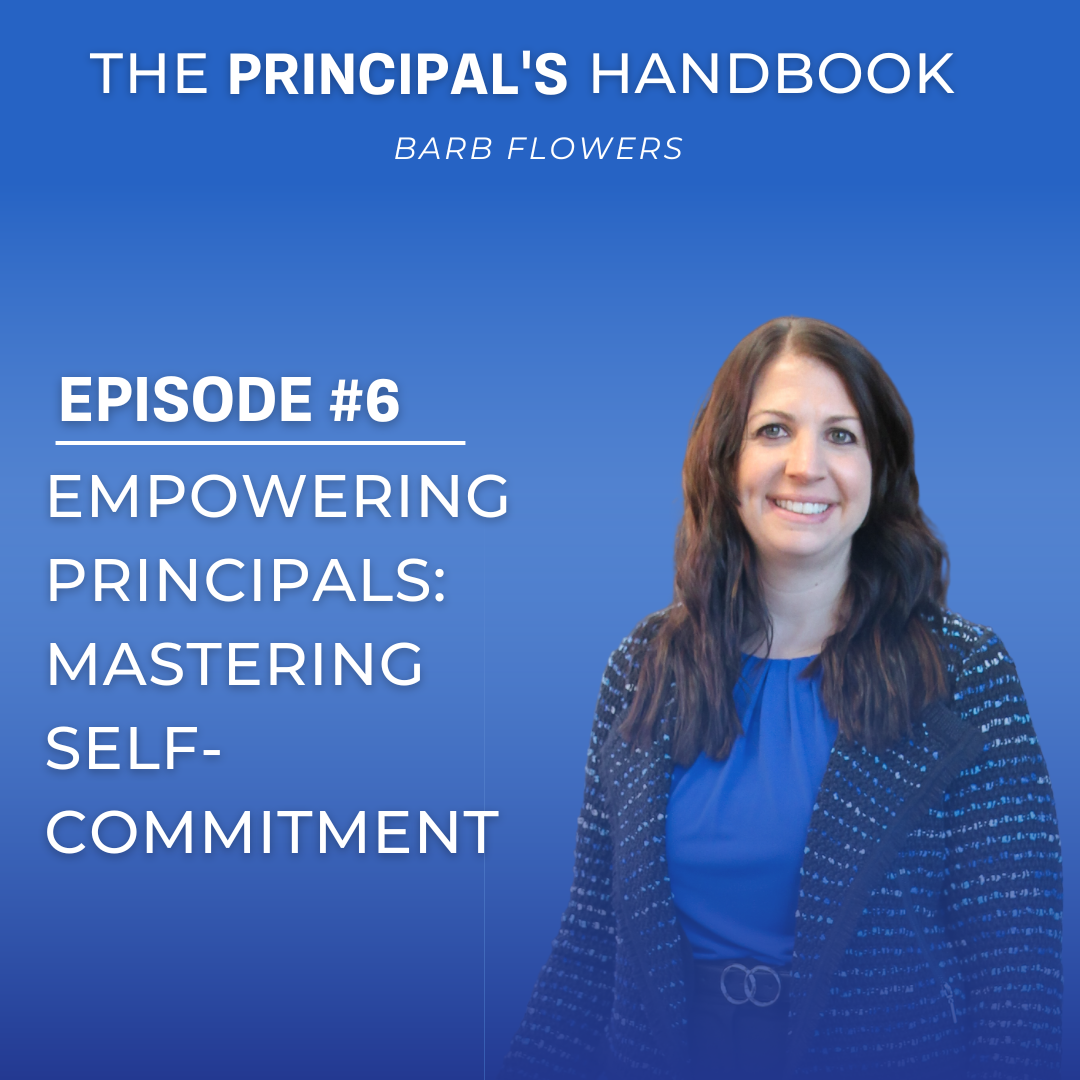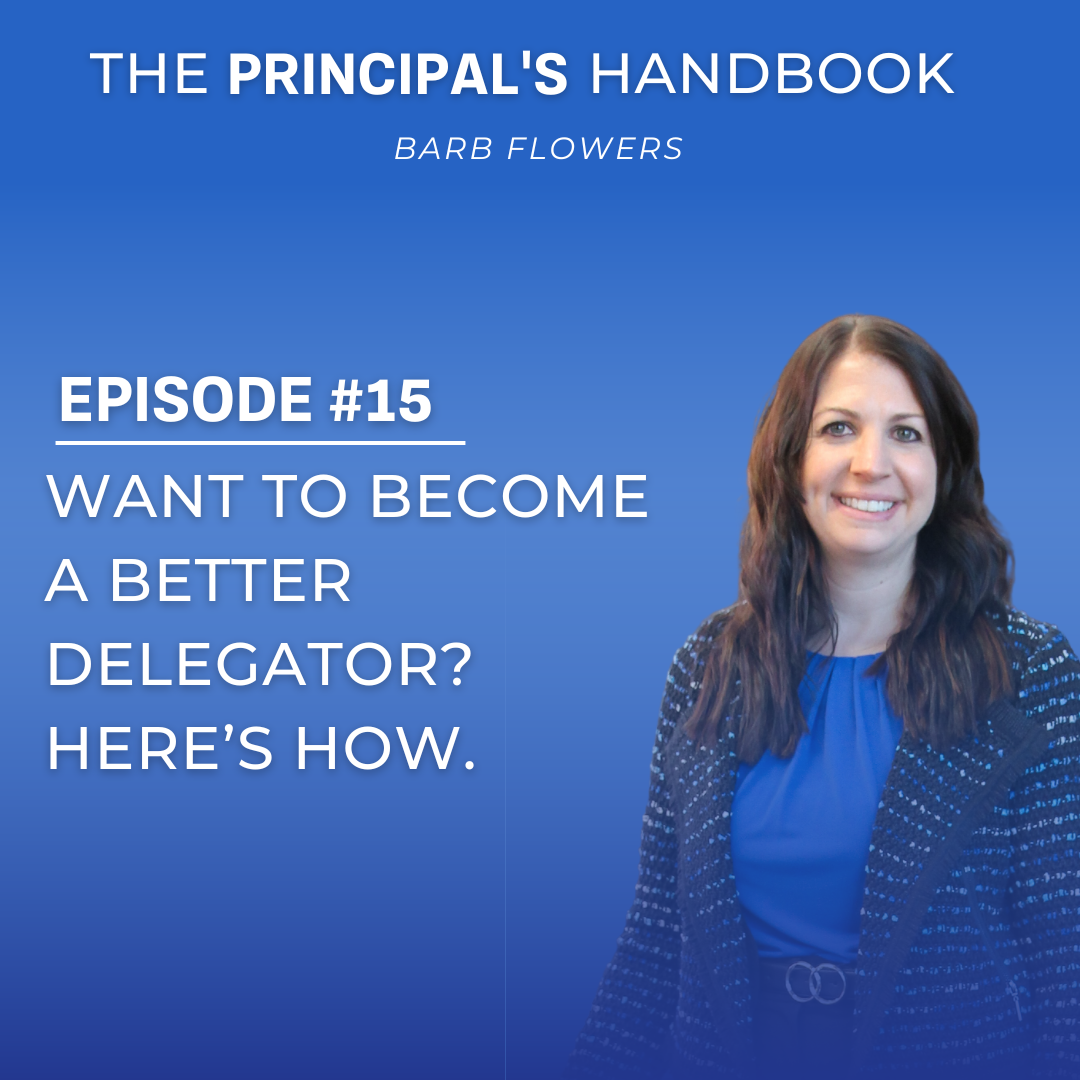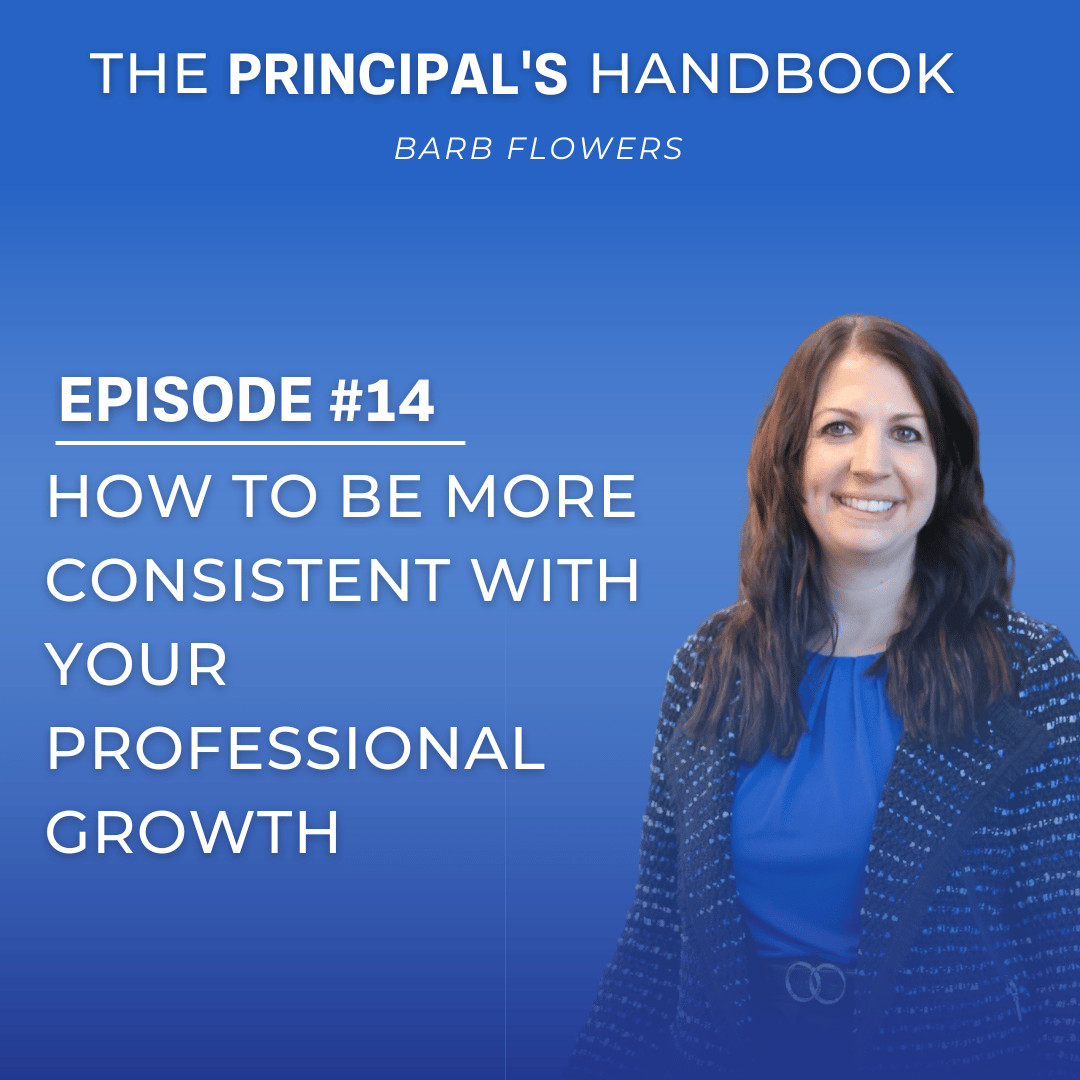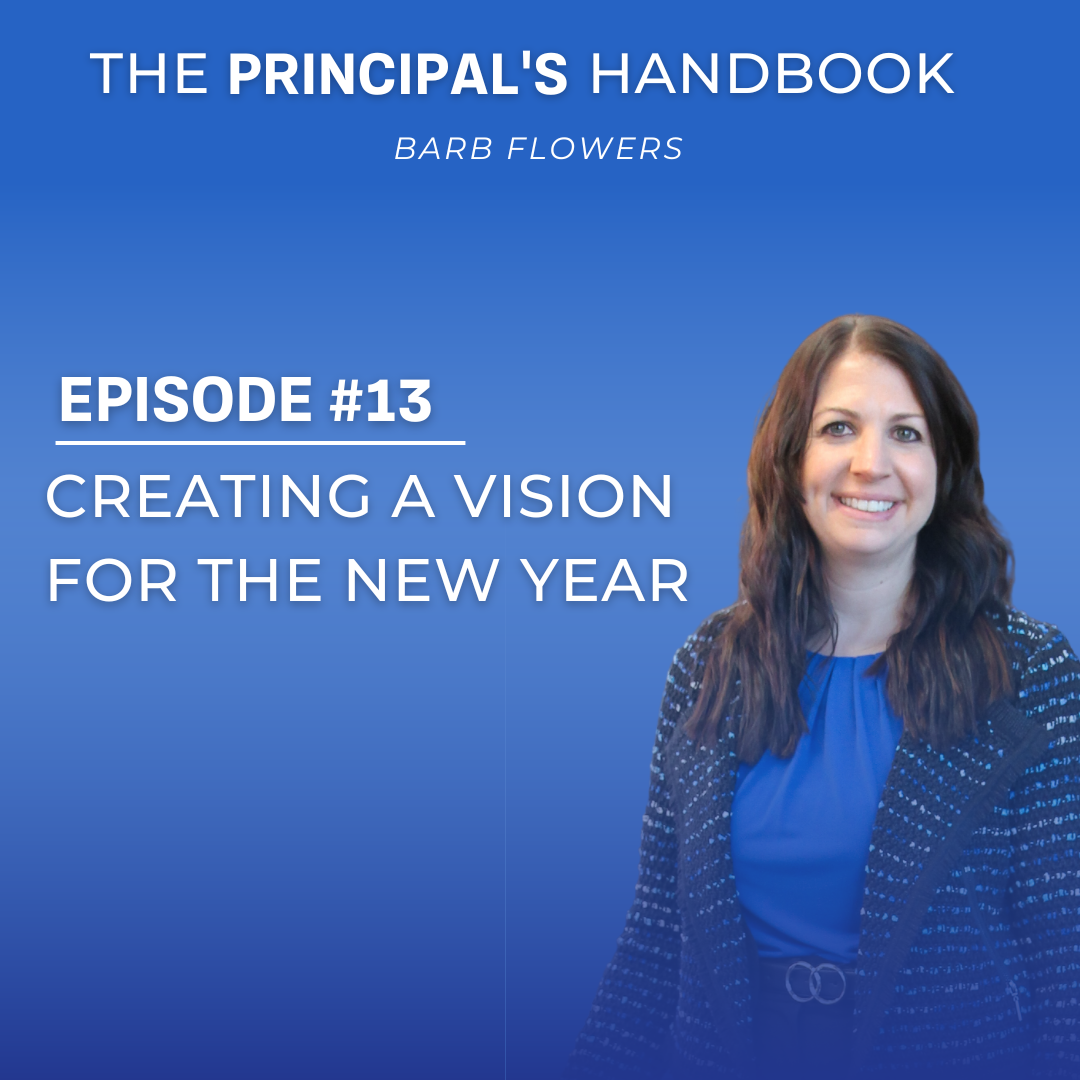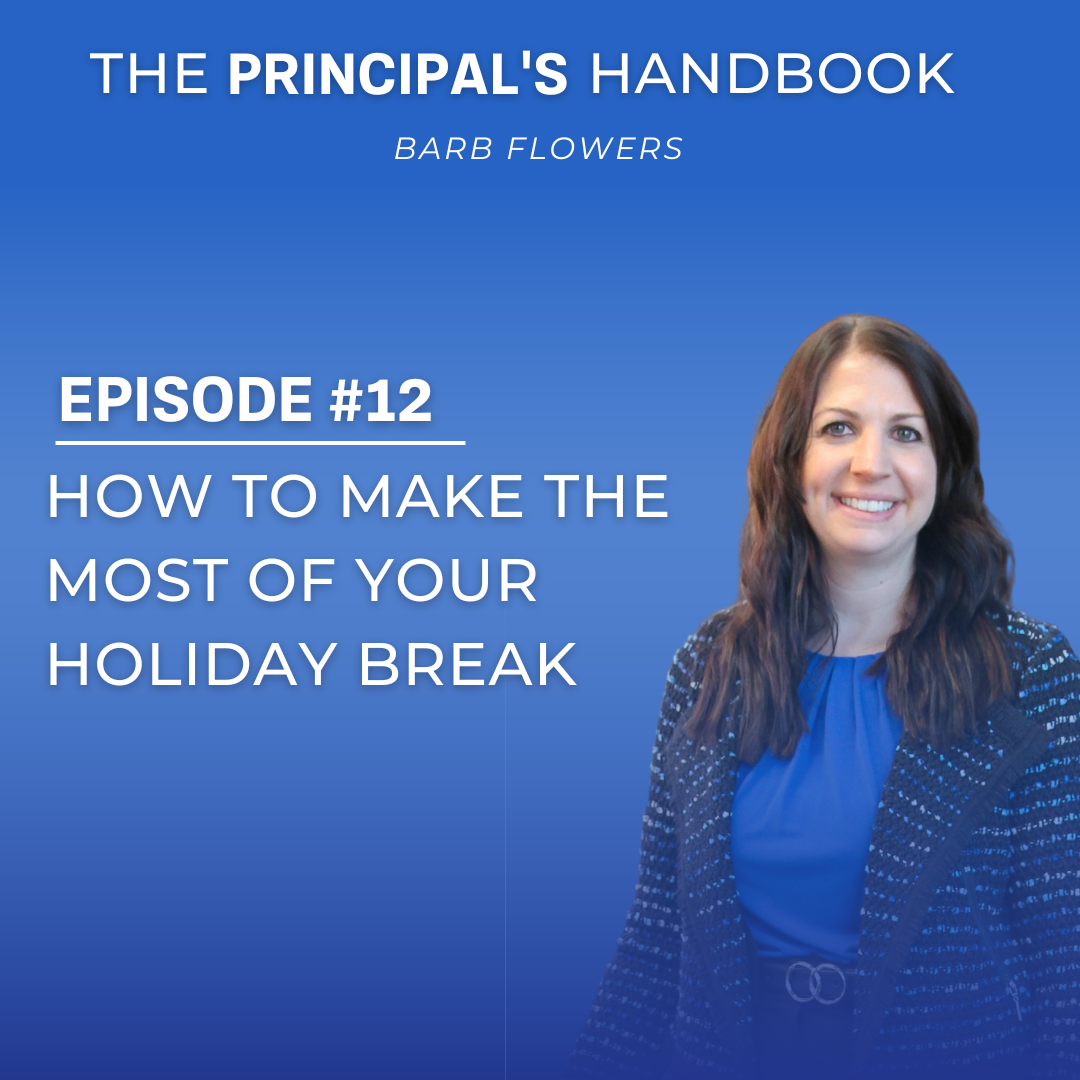[00:01:00]
Welcome to The Principal’s Handbook, your go-to resource for principals looking to revamp their leadership approach and prioritize self-care. I’m Barb Flowers, a certified life coach with eight years of experience as an elementary principal.
Each week, we’ll dive into strategies for boosting mental resilience, managing time effectively, and nurturing overall wellness. From tackling daily challenges to maintaining a healthy work-life balance, we’ll navigate the complexities of school leadership together. Let’s reignite your passion for the job and make your well-being the top priority.
Hey everyone, today’s episode is all about the critical skill of honoring your commitments to yourself—doing what you say you’ll do.
Do you ever set goals or make promises to yourself, only to give up because it feels impossible? Do you get overwhelmed by how far you think you have to go? Or maybe you find yourself overthinking your goals until they feel out of reach?
If any of that sounds familiar, first know this: it’s completely normal. And—it’s something you can work on.
One of the five stages of confidence I coach principals on is keeping your word to yourself. It’s powerful. Whether it’s a big promise or something tiny like mailing a letter, following through strengthens your belief in your ability to achieve your goals.
If you don’t, self-doubt creeps in. You start thinking, “I can’t follow through,” and that belief makes it even harder to succeed. It becomes a self-fulfilling prophecy.
Think about it: have you ever set a goal—say, starting a new exercise routine—and after missing a day or two, immediately decided you’d failed? That one slip reinforced the belief, “See? I can’t stick to anything.”
Over time, this erodes your confidence—not just in fitness, but in every area of life.
But imagine if instead, you focused on building belief—keeping small promises to yourself, and using that to create momentum. Honoring even your tiniest commitments lays the foundation for big achievements.
And here’s something important to remember: how you handle one commitment is often how you approach all commitments.
When you consistently follow through—whether it’s for your health, your work, or your personal goals—you show yourself (and others) that you’re dependable. That creates a ripple effect across your whole life, including how you lead your school.
Today, I’m sharing five practical strategies to help you strengthen your self-commitment, build confidence, and make lasting positive changes.
Strategy 1: Cultivate Strong Belief
Strong belief isn’t just about “positive thinking”—it’s about truly believing you can reach your goals.
-
Visualize your success: See yourself achieving what you want. Imagine your thriving school culture, successful students, or even your own healthier, happier self.
-
Surround yourself with positive influences: Find groups or communities (like a principal network or a coaching program) that support your vision.
-
Challenge self-doubt: Self-doubt will pop up—it’s natural. Acknowledge it, but don’t let it define you. Use affirmations like:
Strategy 2: Create To-Do Lists
Turn commitments into actionable steps:
-
Write down your goals daily.
-
Prioritize your top three tasks each day.
-
Set realistic deadlines.
-
Celebrate small wins—even tiny victories build momentum and confidence.
Strategy 3: Define Clear Goals
Vague goals set you up for frustration. Make them specific, measurable, and time-bound:
-
Break big goals into smaller milestones.
-
Use SMART goals (Specific, Measurable, Achievable, Relevant, Time-bound).
-
Track your progress like you would progress monitor a student—and adjust your action steps if needed.
Strategy 4: Schedule Everything on Your Calendar
If it’s not scheduled, it probably won’t happen.
-
Time-block your commitments (classroom visits, PLCs, leadership meetings).
-
Set reminders—I even have my secretary help remind me of critical duties.
-
Be flexible: Things will come up. Adapt without beating yourself up.
For example, if you miss a PLC meeting because of an emergency, don’t give up on attending PLCs altogether. Instead, follow up with teachers, read their notes, and find another way to stay engaged.
Strategy 5: Establish Consistent Routines and Habits
Transform your commitments into habits to make them stick.
-
Start small: Maybe commit to visiting five classrooms each morning.
-
Build consistency: Practice routines at the same time each day or week.
-
Reinforce your new identity: Every consistent action builds the belief: “I am a visible, present instructional leader.”
Teachers and students notice when you’re consistent—and they appreciate it. I often have teachers say, “I was waiting for you to come to my room today!” Those small moments build trust and culture.
Remember, small, consistent actions create massive long-term results. Honoring your word to yourself not only transforms your own confidence but also makes you a more powerful and effective leader for your school community.
Thanks for tuning in today. Keep taking small steps—and keep believing in what’s possible for you and your leadership.
Talk to you next time!


